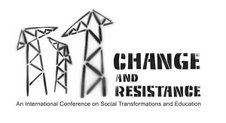Pip Cotton
The learning Connexion & Massey University
In recent decades there appears to have been a major escalation in people engaging with the ‘arts’, and there has been a corresponding expansion in arts related education. Reflecting local and global forces which have shaped adult education over the last two to three decades, the New Zealand tertiary system has seen a major expansion in private education providers. This paper reports on a doctoral study which focuses on a small group of students at a private training establishment known as The Learning Connexion (TLC). This school delivers a program entitled ‘Art and Creativity’ and has gained recognition nationally as something of ‘an alternative art school’, with very strong philosophical and practical elements which distinguish it from the mainstream. The study reveals that many of the people engaging with TLC do so as part of a major period of transition, reorientation or reframing in their lives.
As the project unfolded, a ‘systemic’ perspective emerged to structure the methodology, with an emphasis on conceiving knowledge production as processes involving interdependencies between brain, mind and culture. Different ‘art’ forms in this view can be considered to be distinct knowledge systems based on unique configurations of brain, mind, and cultural elements and processes. I draw on material from developmental theory, evolutionary theory, neurology, and the origin of image-making within the Upper Palaeolithic to justify this view. I also suggest that the key elements which ‘cohere’ to produce forms of knowledge, relate to concepts of symbolism, identity and memory.
When these perspectives are used to analyse the research participants narratives, strong elements of symbolism, identity and memory are revealed, which can also be described in terms of a persons ‘artistic style’. The analysis suggests that for the research participants at least, engaging in activities of image-making within the environment provided by TLC resulted in very positive psychological outcomes. It also suggests that within a highly fluid, complex, and rapidly changing world that many of us are now experiencing, periods of ‘creativity orientated education’ may be one important way of contributing, not just to individual coherence, but to some levels of general social coherence as well. Reflecting these perspectives, the paper concludes with consideration of the question: are we becoming ‘our own artists’ as an adaptive response to change pressures?
Subscribe to:
Post Comments (Atom)

No comments:
Post a Comment